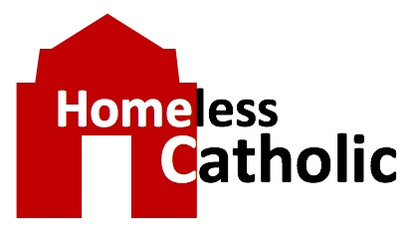What’s on your list?
I have a lot of lists. I carry a small notebook with me to keep track my some of my many lists. There’s my “to-do” list for today, which has, well, a summary of what I figure I can get done just today. There’s a longer list of things to do, some of my own making, some that have been requested of me. This includes my “honey do” items, commitments I’ve made for Scouts, the wood ministry, my monthly reflection, or tasks down at the makerspace.
Today’s Gospel got me thinking about lists.
Image by Markus Winkler
What’s on your list?
By Steve Leininger
https://bible.usccb.org/bible/readings/120421.cfm
Matthew 9:35–10:1, 5a, 6-8
Isaiah 30:19-21, 23-26
I have a lot of lists. I carry a small notebook with me to keep track my some of my many lists. There’s my “to-do” list for today, which has, well, a summary of what I figure I can get done just today. There’s a longer list of things to do, some of my own making, some that have been requested of me. This includes my “honey do” items (you know, when your spouse makes a request), commitments I’ve made for Scouts, the wood ministry, my monthly reflection, or tasks down at the makerspace.
Today’s Gospel got me thinking about lists. I’m dyslexic and have attention deficit disorder, so I compensate for the noise and disorder in my mind by writing things down in various lists. I have several lists going at one time, so that related items or commitments will be grouped with “like kinds.” For example, all of my Scouting events, questions, and tasks are on my, you guessed it, my Scouting list. There is a project list for short term projects around the house. And another for longer term projects that will require more planning and possibly outside help to carry out.
Those of us who live in the mountains are continually updating their “Springs list,” which is a shopping list for when we drive down out of the mountains to Colorado Springs.
Today’s Gospel in list form
I find that having a context on the current reading often helps explain why things are presented the way they are. Today’s Gospel, which spans the end of chapter 9 and the beginning of chapter 10 in Matthew, we are presented with what can be logically split into 5 separate “thoughts.” The readings themselves don’t really tell you where we are in location or time by themselves. So let’s look at the “context list.” There are several ways to get to this list, including parallel gospel comparisons, Bible timelines, and, well, reading the material that leads up to the verses in today’s readings. There’s a lot of readings preceding today’s Gospel, but nothing stands out as THE element that we should really know about. That’s of course not always the case.
So here is the list that I came up with to make me comfortable in time and space:
Context
- In the second year of His ministry
- Sermon on the Mount earlier in the year
- Many miracles have been performed
- Significant travel in the region
- Apostles have not yet been chosen
- Large crowds are following the ministry of Jesus
- Might be in or around Capernaum, but it’s not essential to the story.
It is notable that when trying to compare the timing for events portrayed in the books of Matthew, Mark, Luke, and John, there are some obvious connections between the writings in each book, but the chronological order in each book may not line up with the others. Different timeline resources don’t agree on the de-conflicted combined timelines.
If we looked at Jesus’ to-do list, it might have looked like this:
To-do list (Jesus)
- Go around to ALL towns & villages (see other list)
- Teach in the synagogues
- Proclaim the Kingdom
- Cure disease and illness
This lines up remarkably well with the beginning of today’s Gospel reading:
Jesus went around to all the towns and villages,
teaching in their synagogues,
proclaiming the Gospel of the Kingdom,
and curing every disease and illness.
[Matthew 9:35]
But all is not well along the way. Despite a growing number of followers, something did not feel right about the crowds. Maybe they got part of the message but lost it afterwards. Perhaps they listened but did not hear. Jesus recognizes that there is some kind of disconnect going on.
At the sight of the crowds, his heart was moved with pity for them
because they were troubled and abandoned,
like sheep without a shepherd.
[Matthew 9:36]
Jesus may have made some notes here on his issues list:
Issues
- So many people!!
- They seem lost (like sheep…)
- Why don’t they have any leaders??
To address the lack of localized leadership for the crowds, Jesus speaks metaphorically to his disciples, his trusted followers that have been watching the teachings and healing ways of the Lord:
Then he said to his disciples,
“The harvest is abundant but the laborers are few;
so ask the master of the harvest
to send out laborers for his harvest.”
[Matthew 9:37-38]
Jesus does not explain this short talk with his disciples. It is almost a “note to self” as master of the harvest. He has been so successful spreading the good news that the unguided crowds of followers (the harvest) are large in number, but the laborers (messengers of the good news) are few. Up to this point, Jesus has been the sole presenter. When he says, “ask the master of the harvest,” he is talking about himself. I don’t believe he is expecting someone to understand and say, “put me in coach!!”
That belief is based on what happens next as we continue into Chapter 10 of Matthew. Today’s reading is an abbreviated and edited version of the first few verses of the chapter. The part that is left out is Matthew’s brief version of the naming of the Twelve. Jesus would have had a list like this:
These are the guys
1. Simon (Peter)
2. Andrew (Peter’s brother)
3. James (Zebedee’s son)
4. John (James’ brother)
5. Philip
6. Bartholomew
7. Thomas
8. Matthew (tax collector)
9. James, the son of Alphaeus
10. Thaddeus
11. Simon the Cananean
12. Judas Iscariot
In Matthew, they are called the “Twelve.” What happens next is pretty remarkable:
Then he summoned his Twelve disciples
and gave them authority over unclean spirits to drive them out
and to cure every disease and every illness.
[Matthew 10:1]
This doesn’t seem to get much emphasis in the telling of the tale, but to me it seems like a REALLY BIG DEAL. It is a good thing Jesus has them prepped thusly, because he was just about to give them each a list of instructions. It might have looked like this:
Do this!
- Find the lost from house of Israel
- The Kingdom of heaven is at hand
- Cure the sick
- Raise the dead
- Cleanse lepers
- Drive out demons
- DO NOT CHARGE FOR THIS
Which is close to the end of today’s Gospel reading:
Jesus sent out these Twelve after instructing them thus,
“Go to the lost sheep of the house of Israel.
As you go, make this proclamation: ‘The Kingdom of heaven is at hand.’
Cure the sick, raise the dead,
cleanse lepers, drive out demons.
Without cost you have received; without cost you are to give.”
It is also very close to the same to-do list that Jesus himself had been using as a guide.
It would be unrealistic to think that we are worthy and/or capable of performing these functions if we were presented with the same list. So the real question for each of us is, “What’s on your Journey with Christ to-do list?”

